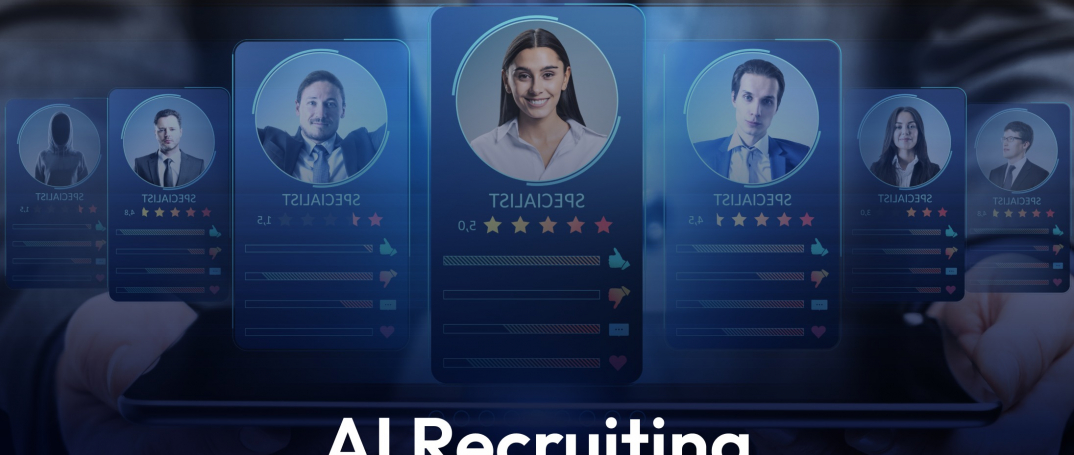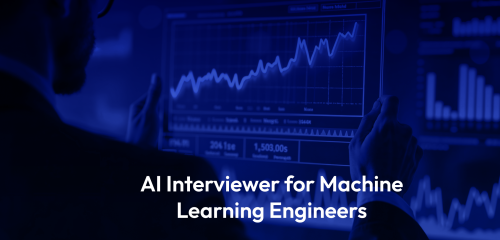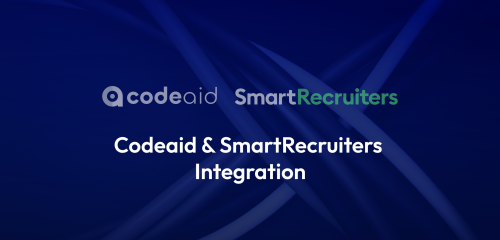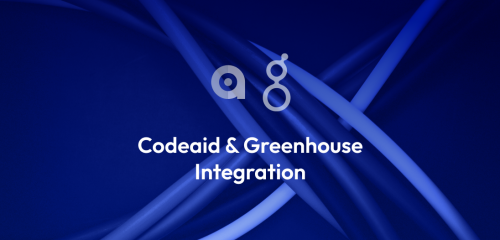Guess what’s shaking up the recruiting world?
Yep, it’s AI recruiting.
With its game-changing capabilities, AI is revolutionizing how businesses scout top-notch talent.
For example, Unilever’s partnership with Pymetrics led to the creation of an innovative AI recruiting platform that automates the initial screening process, saving approximately 70,000 person-hours.
This venture not only streamlines recruitment but also ensures every applicant receives actionable feedback.
But what lies beneath the surface of AI recruitment?
Buckle up because we’re about to deep-dive into how AI is rewriting the rules of recruiting in 2023.
What Is AI Recruiting?
Simply put, AI recruitment is the fusion of artificial intelligence tools into the hiring process, making everything from sifting through resumes to interviewing candidates a breeze.
Now, why are businesses jumping on this bandwagon?
Two words: efficiency and precision.
Gone are the days of skimming through mountains of resumes. With AI, companies can swiftly pinpoint top-notch talent without breaking a sweat. So, if you’re a recruiter, it’s high time to utilize AI in your screening processes.
The Demand for AI Recruitment Technology in the Recruitment & Selection Process
In the past year, models like ChatGPT have redefined how businesses perceive and utilize machine learning. Our workspaces have been enhanced with various AI applications, and HR is not lagging behind. Tech recruiters are even implementing strategies to construct AI-proof coding tests, which can tell you just how much AI can be disruptive.
Valued at a staggering $610 million in 2021, the AI recruitment market is projected to grow to almost $890 million by 2028.
The birth of conversational AI models such as ChatGPT paves the way for real-time, human-like interactions with candidates, enhancing the recruitment experience manyfold.
The result? With AI’s ability to dive deep into talent market data, hiring decisions have never been more informed and precise. Bonus: AI can even detect ChatGPT-generated solutions for a maximum accuracy.
So, if you’re still doing things the old-school way, maybe it’s time for an upgrade. AI recruitment and selection is faster, better, and more efficient than any other technologies you’ve used before.
The Importance of AI-Based Recruiting for Businesses
Just imagine eradicating those mind-numbing repetitive tasks, like sorting through heaps of resumes. That’s precisely what AI-powered recruiting tech is here for.
Consider this: On average, a single corporate job post could pull in around 250 resumes.
Out of those, maybe only 4 to 6 get an interview call. The best AI recruiting tools, with their advanced algorithms, can sift through these resumes, highlighting only the top-tier candidates. The outcome? Recruiters save tons of time and ensure only the best talent steps through those office doors.
The Benefits of Artificial Intelligence in Recruitment
In the world of recruitment, AI can be a game-changer. As 96% of senior HR professionals predict that AI will redefine talent acquisition and retention, it’s clear that the future of hiring is here, and it’s smarter than ever.
Here are some of the benefits AI for recruiting brings to businesses:
Bias-Free Hiring Process
It is often the case that recruiter A and recruiter B might have entirely different judgments about the same candidate. Traditional recruitment often tiptoes around human biases, making some hiring decisions more emotional than objective.
The game-changer? AI’s neutrality.
Instead of relying purely on human judgment, AI uses data to identify a candidate’s soft and hard skills, the suitability of a candidate for a role, and more. By doing so, AI ensures that every candidate gets a fair shot, driven purely by their merits and fit for the role.
Maximized Time Efficiency
Time, as they say, is money. Especially in recruitment, where manually sifting through heaps of resumes can be painfully time-consuming.
With AI, tasks like resume screening, initiating assessments, or scheduling interviews can be automated, giving recruiters more time to engage with potential hires meaningfully.
In fact, about 65% of recruiters already utilize AI to cut down on these repetitive tasks.
Better Job Descriptions and Person-Job Fit
Have you ever crafted a job description and felt like it didn’t quite hit the mark?
With AI, not only can you get suggestions to improve your job posts, but in some instances, AI can even create them for you.
And let’s not forget the power of AI-driven chatbots. They can guide potential candidates towards suitable job roles and even conduct a preliminary screening.
Enhanced Candidate Experience
First impressions matter, especially when it comes to candidate experience.
A swift response time can make a world of difference, with 69% of job seekers believing that this is a crucial area of improvement. AI steps up to this challenge, ensuring timely communication even when dealing with a large number of applications.
Whether it’s AI chatbots answering candidate queries promptly or AI-driven matching technologies suggesting the best roles, the candidate’s journey is made smoother. Ultimately, this reflects positively on the employer brand, positioning the company as a preferred choice for many.
What are the Challenges of Applying AI in Recruiting?
AI recruiting solutions can help you tremendously, but they also come with their own set of challenges.
Understanding these drawbacks is crucial before implementing AI-powered recruiting solutions into your HR processes.
Let’s take a look at the main cons of AI recruitment tools:
Lack of Human Touch
AI tools can efficiently scan for keywords, assess qualifications, and even predict potential job performance based on data-driven factors.
However, the intricacies of human interaction, such as cultural fit, work ethic, and emotional intelligence, are challenging for AI to comprehend fully.
AI interviewing platforms that analyze facial expressions might misinterpret the underlying emotions or motivations.
For example, AI might see a smile, but is it a nervous one or a confident one? Hard for it to tell.
Plus, let’s face it: Nobody wants their first ‘hello’ from a potential employer to feel like it’s coming from a robot on autopilot.
Speech Interpretation Pitfalls
You know when you ask your voice assistant to play your jam, and it totally misfires? Imagine that in an interview.
AI recruiting tools can sometimes miss a beat. Some stats suggest they goof up with about 10% of a candidate’s response. However, this number might even double for non-native English speakers.
Such misinterpretations could inadvertently skew candidate evaluations.
Privacy and Ethical Concerns
AI, by nature, processes vast amounts of personal data, leading to concerns about data privacy and security.
Companies must ensure ethical data collection and usage, maintaining transparency with candidates about their data handling processes. Furthermore, with the rapid evolution of AI, there’s a pressing need for regular updates to stay in line with shifting global privacy norms and legislative guidelines.
Employers should also ensure that human judgment remains integral to pivotal stages of the hiring process.
Types of AI Recruiting Technology and Tools Available in the Market
Whether it’s saving time, precision-targeting talent, or refining the way we chat with potential hires, AI tech tools are leveling up the game. Let’s take a closer peek at the best AI recruiting software:
Recruiting Chatbots
Remember when you’d have to wait ages for a human to answer those burning questions about a job? Those days are in the rearview.
Now, chatbots ensure candidates get real-time answers and constant updates about the process. By keeping potential hires engaged and informed, it’s a win-win for everyone.
Best recruiting chatbots:
- Olivia (by Paradox.ai)
- Sense Recruiting Chatbot
- iCIMS Text Engagement Chatbot
AI Powered Applicant Screening
Imagine having a superpower where you could instantly spot the best candidates from a sea of resumes. AI-powered applicant screening does just that. By analyzing CVs against a specific job’s needs, this tool shortlists those shining stars, ready to light up your organization.
Best applicant screening software:
- HireVue
- Pymetrics
- TalentSorter
Interviewing Tools
AI-powered interviewing tools are taking center stage, providing a fresh and objective lens to the age-old interviewing process.
These tools, armed with sophisticated algorithms, can analyze a candidate’s speech patterns, body language, and even emotional cues, ensuring recruiters receive comprehensive insights. Some tools even offer skill-focused question generation based on a candidate’s CV and real-time evaluation.
And the best part? They help eliminate biases, offering a more balanced and fair interviewing landscape.
Best AI interviewing tools:
Skill Gap Analysis
Ever wonder where your team might be lacking in skills? Enter skill gap analysis. These tools pinpoint where there might be knowledge gaps in your current team or even in potential candidates, helping you make strategic recruitment decisions.
Examples:
AI Sourcing
Sourcing candidates can be challenging. But with AI sourcing tools, this is not the case anymore.
By analyzing vast amounts of data from multiple sources, AI sourcing tools identify and present potential hires that best match the job requirements and the company culture. They pull from a wealth of online data, ensuring no stone is left unturned and no potential candidate overlooked.
Examples:
- SeekOut
- Entelo
- HiringSolved
Predictive Analytics
Gone are the days of relying solely on gut feelings in recruitment. With predictive analytics, we’re ushered into an era of data-driven decisions.
This type of tools is the modern-day oracle for HR pros, offering forecasts about a candidate’s potential success and tenure in a role. Predictive analytics gives recruiters a snapshot of a candidate’s future trajectory in the company, helping them make more informed hiring decisions.
Examples:
How AI Recruitment Software Will Change the Role of the Recruiter?
In the modern recruitment landscape, AI is undeniably the driving force, revolutionizing traditional methods and ensuring businesses secure top-notch talent efficiently.
From chatbots to predictive analytics, the AI recruitment sphere is vast, offering tools that cater to every facet of the hiring process and saving thousands of man-hours. This enables recruiters to focus on what truly matters – finding and connecting with the best candidates.
If you’re keen on riding this wave of innovation in tech recruitment, look no further than Codeaid. Dive into our AI-powered Interview Platform and discover how we can improve your tech recruitment process.
Check out our coding test assessments!



